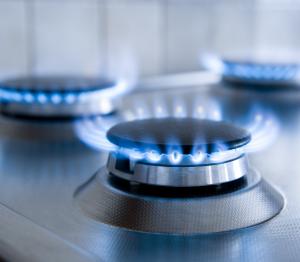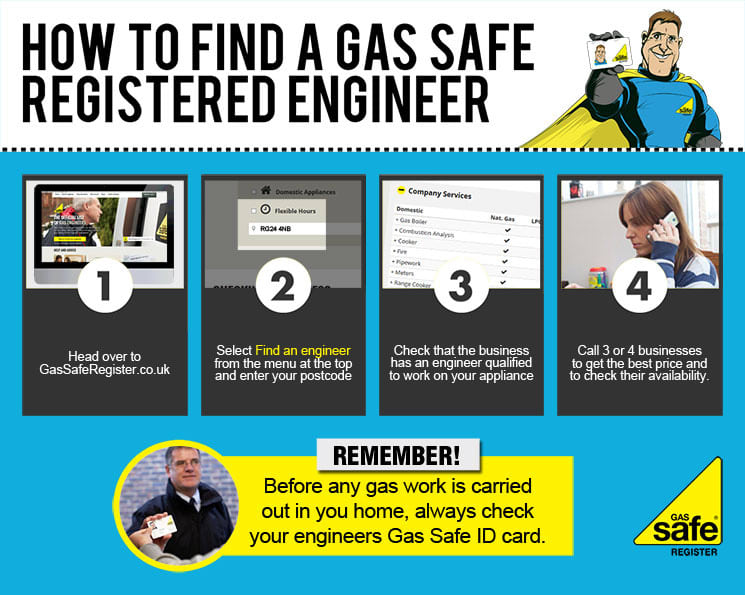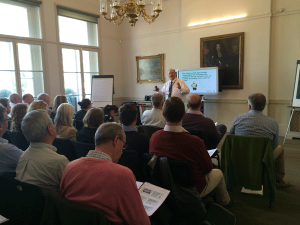This year’s Gas Safety Week 18 -24 September 2017

We thought we would look at gas safety this week as the 7th Annual National Gas Safety Week 2017 is in two weeks’ time.
Of course, this is a topic that doesn’t just apply at work. Twenty-one million households in United Kingdom, Isle of Man and Guernsey use gas.
But, as one of the two recent HSE cases show, even today people’s lives are put at risk by unsafe gas appliances or installations.
This year Gas Safety Week will take place 18th-24th September.
The two HSE cases this week both look at tragic accidents that shouldn’t have happened
- A few hours later the tenant lit a cigarette in the kitchen and a gas explosion occurred partly demolishing the house and severely injuring two of the occupants.
- An engineering company has been fined after a 29-year-old worker was diagnosed with hand-arm vibration syndrome (HAVS) – a condition causing tingling, pins and needles, numbness and pain in the affected person’s hands.
As ever, if you have a subject that you would like us to cover one week, please contact us by phone 01458 253682, email, or via our Facebook page or by Twitter
Gas Safety
Gas Safety Week is an annual safety week to raise awareness of gas safety and the importance of taking care of your gas appliances. It is co-ordinated by Gas
Safe Register with support from the gas
industry including retailers, manufacturers, consumer bodies and the public.
Twenty-one million households in United Kingdom, Isle of Man and Guernsey use gas for heating, hot water and cooking, yet we take it for granted that our boilers, cookers and gas fires are safe. Badly fitted and poorly serviced gas appliances can cause gas leaks, fires, explosions and carbon monoxide poisoning.
Did you know?
- Every year thousands of people across the UK are diagnosed with carbon monoxide poisoning. It is a highly poisonous gas. You can’t see it, taste it or smell it, but it can kill quickly with no warning.
- Gas Safe Register estimates that there are around 7,500 illegal gas fitters operating across the UK and up to 250,000 illegal gas jobs may be carried out each year (Gas Safe Register Research 2009).
- Although there is awareness that gas appliances need to be safety checked annually, 43% of Britons don’t do it, and 10% have gas appliances which have never been checked (Gas Safety Week Research 2011).
If gas appliances, such as ovens, cookers and boilers, are not properly installed and maintained, there is a danger of fire, explosion, gas leaks and carbon monoxide (CO) poisoning.
Employer’s duties
Employers need to comply with the relevant regulations to help ensure worker and public safety. You can do this by following our advice on maintaining and servicing gas appliances, by using a Gas Safe registered engineer or a competent person.
Case study
The importance of being Gas Safe registered

Rachel Broad and Ian Fellows employed an unregistered gas worker to remove a boiler from their downstairs toilet, install a new gas boiler in their children’s bedroom upstairs, and install a duel fuel cooker in the kitchen as part of building work involving an extension of their property. Lee Lawrence from Amber Plumbing Solutions was displaying the Gas Safe Register logo on his website and business cards, falsely claiming to be registered.
Once installed, the boiler and the cooker started leaking. With the boiler not running for long before shutting down, and being smelly and noisy, Rachel and Ian stopped using it and were made to install ventilation into the room due to the smell. A Gas Safe registered engineer was then called in to make the property safe and provide a statement of the gas work that had been carried out.
It was found that the flue to the gas boiler was unsafely connected; the gas connection to the fuel cooker was also poor, with faulty connections all over the appliances. The registered engineer classified the gas work in accordance with the Gas Industry Unsafe Situations Procedure as ‘Immediately Dangerous’. The boiler and cooker were condemned, resulting in electrics being left undone, with very little electricity throughout the downstairs of the house. The estimated total cost of the building work including the gas work was £50,000 to £60,000.
The homeowners who were looking to sell the house are no longer able to do so. The unregistered gas fitter was charged with a 6-month prison sentence, 12-month suspension, 180 hours of community service, fined £2,385 and £5,400 compensation.
How cases like this can be avoided?
Working with gas appliances is difficult, specialised and potentially very dangerous. Only competent engineers should attempt it. If unregistered workers try to bypass the law, they are not only putting themselves at risk of prosecution and a large fine or even imprisonment, they are also putting their customers’ lives at risk.
Who is competent to work on gas fittings?
Domestic properties, schools etc.
In domestic properties and workplaces such as shops, restaurants, schools and hospitals, this must be carried out by someone on the Gas Safe Register who is qualified to work on gas appliances.
It is illegal for an unregistered person to carry out work on any domestic gas appliance. You can check this by contacting the Gas Safe Register [1] online or by calling them on 0800 408 5500.
All those who are registered carry a Gas Safe ID card, which shows the type of work they are qualified to do and whether their qualifications are up to date.
Factories, mines etc.
In factories, mines, quarries, agricultural premises, construction site huts and sewage works, work on gas fittings must be carried out by a competent person It is your responsibility to check that they are competent. If the engineer is on the Gas Safe Register, with the qualifications to do the work required, then they will be a competent person.
Work in any parts of these premises used as domestic, residential or sleeping accommodation must be carried out by someone on the Gas Safe Register.
What do I have to do?
The basics
- Use a competent engineer to install, maintain or repair your appliances
- Ensure that your gas pipework, appliances and flues are regularly maintained
- Check that all rooms with gas appliances have adequate ventilation – don’t block air inlets to prevent draughts, and don’t obstruct flues and chimneys
Gas
- If you suspect a leak, turn off the supply and immediately call the National Gas Emergency Service on 0800 111 999 for natural gas. For liquefied petroleum gas (LPG), call your LPG supplier
- If in doubt, evacuate the building and inform the police as well as the National Gas Emergency Service or your gas supplier
- Do not turn a gas supply back on until a leak has been dealt with by a competent person
Appliances and pipework
- Use a competent engineer to install, maintain or repair your appliances
- Ensure that your gas pipework, appliances and flues are regularly maintained
- Don’t use any appliance you know or suspect is unsafe
- Check that the room has adequate ventilation – don’t block air inlets to prevent draughts and don’t obstruct flues and chimneys
Industrial and commercial plant
Explosions can be caused by the ignition of un-burnt gas.
- Consider the need for explosion relief and/or flame-failure protection as necessary
- Make sure that the gas supply is interlocked with the ventilation of the appliance
- The equipment should be designed, operated and maintained to make sure dangerous levels of carbon monoxide (CO) are not produced. It should not be used in poorly ventilated spaces
- There should be enough ventilation to remove combustion products
- Make sure the operators are fully trained – use a safe procedure for purging, lighting up and shutting down the plant
The law
Health and Safety at Work etc. Act 1974
The general duties of the Act cover work on gas fittings in factories, mines, quarries, agricultural premises, construction site huts, sewage works and gas-fitting testing premises.
In these premises, work on gas fittings must be carried out by a competent person. If any part of these premises are used as domestic, residential or sleeping accommodation, work on gas fittings must be carried out by someone on the Gas Safe Register.
Gas Safety (Installation and Use) Regulations 1998
These Regulations cover work on gas fittings, both natural and LPG in other premises, e.g. domestic properties, shops, restaurants, schools and hospitals. In these premises, the work on gas fittings must be carried out by someone on the Gas Safe Register.
If you need further information please call us on 01458 253682 or send us an email.
Taunton & Somerset CPD Group at The Lawns Taunton
Trust you are all having a good summer despite the weather and we hope you will all be able to attend the next CPD Group meeting as it looks like it will be very interesting.
Martin Kent our Customer Relations Manager has arranged this month’s seminar – see below. As previously requested, if you could let Martin know whether or not you can attend it would be greatly appreciated. Also, if you would like to give a talk, or know of somebody who would, please contact Martin.
The first of these Autumn seminars is on Wed 13th September at 12:15pm prompt please: at The Lawns Taunton.
Our Speaker will be from Altro Flooring will be coming along to do a “Designing for Dementia”.
If you haven’t already booked your place, or if you are not on the CPD Seminar mailing list but would like to be please drop Martin an email and he will deal with your request.
Just to give you some advanced notice the next seminar will be 18th October when GronoDec will be coming along.
Then the final Seminar of the year will be 22nd Nov speaker to be confirmed.
Training
We have several courses running soon:
- CDM Regulations 2015 – An Awareness Course – 18th September 2017
- CDM Regulations 2015 – For the Smaller Builder – 27th September 2017
- ASBESTOS AWARENESS – 27th September 2017
- CDM Regulations 2015 – Principal Designer Course – 12th & 13th October 2017
- BSC Level 1 Award Health and Safety in a Construction Environment – 16th October 2017
- Supervising Staff Safely – 24th & 25th October 2017
